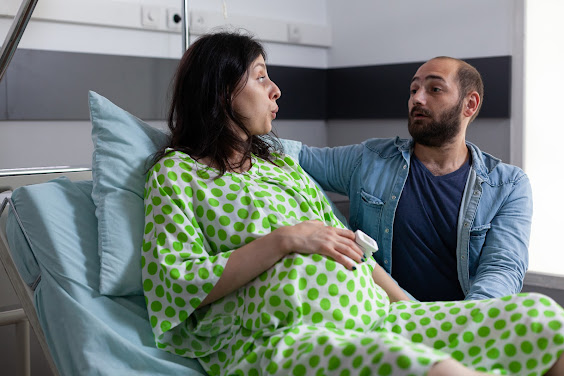It is Harder to Diagnose Cancer in Pregnant Women. Read Why.
In a normal human anatomy, new cells develop in the body and multiply through the process of cell division thus forming new cells. The old cells, which are of little use and are damaged, then die and get replaced by newer cells. However, in this naturally occurring intricate process when an abnormal activity takes place, things get complex. When these damaged cells present in the body multiply to form newer damaged cells, certain tumours and lumps of tissue are formed which may be benign or malignant. On investigation, if found that this tumour or lump formed is malignant, it indicates a possibility of them to be cancerous. The process of when these damaged and malignant cells divide and spread further into healthy tissues is known as metastasis. For many types of cancers, metastasis indicates the 4th stage of the severity of cancer, which in medical terms suggests that the malignant cells have entered and damaged the healthy tissues of another organ different to where it first originated. Metastatic cancer is often deemed to be terminal.
Every year thousands of women are diagnosed with cancer, a few of whom
are pregnant. But it is a known fact that pregnant women are often subject to a
late diagnosis because certain tests or scans, which are imperative to cancer
detection, are considered unsafe for the unborn foetus.
There are certain symptoms and signs, so commonly found in pregnant
women that overlap with symptoms of breast cancer which makes it doubly harder
for radiologists and physicians to detect breast cancer. One such instance
during pregnancy is when the breast tissue of the woman becomes increasingly
dense. This physiological change causes very false-negative findings in women
when a Mammography scan is observed.
Often, Computed Tomography commonly known as a CT scan is preferred to
detect breast cancer in women. A CT scan uses ionized radiations that permeate
within the skin’s tissue for accurate detection. However, for a pregnant woman
and her unborn foetus, the exposure to this type of radiation can potentially
increase the risk of breast cancer. On an average, diagnosis of
pregnancy-associated breast cancer is delayed at least 5 to 7 months. This is a
perfect case of a Catch 22 situation. Both conducting and not conducting the CT
scan can prove harmful for the mother and the child.
Statistics show that
about 1 in every 1,000 pregnant women get diagnosed with some type of cancer.
It is not easy for doctors to pick up early signs of cancer among pregnant
women. The Cancer Research Institute at Sohana Hospital, Mohali has the bestcancer specialists in the whole of North India providing the best
radiotherapy treatment options to their oncological patients. Complex
diagnosis to complex diseases require a multidisciplinary intervention which is
why Sohana Hospital, a multispecialty hospital with the best female
gynaecologists takes pride in having doctors dedicated to performing
accurate diagnosis and offering effective treatment.
In a normal human anatomy, new cells develop in the body and multiply
through the process of cell division thus forming new cells. The old cells,
which are of little use and are damaged, then die and get replaced by newer
cells. However, in this naturally occurring intricate process when an abnormal
activity takes place, things get complex. When these damaged cells present in
the body multiply to form newer damaged cells, certain tumours and lumps of
tissue are formed which may be benign or malignant. On investigation, if found
that this tumour or lump formed is malignant, it indicates a possibility of
them to be cancerous. The process of when these damaged and malignant cells
divide and spread further into healthy tissues is known as metastasis. For many
types of cancers, metastasis indicates the 4th stage of the severity of cancer,
which in medical terms suggests that the malignant cells have entered and
damaged the healthy tissues of another organ different to where it first
originated. Metastatic cancer is often deemed to be terminal.
Every year thousands of women are diagnosed with cancer, a few of whom
are pregnant. But it is a known fact that pregnant women are often subject to a
late diagnosis because certain tests or scans, which are imperative to cancer
detection, are considered unsafe for the unborn foetus.
There are certain symptoms and signs, so commonly found in pregnant
women that overlap with symptoms of breast cancer which makes it doubly harder
for radiologists and physicians to detect breast cancer. One such instance
during pregnancy is when the breast tissue of the woman becomes increasingly
dense. This physiological change causes very false-negative findings in women
when a Mammography scan is observed.
Often, Computed Tomography commonly known as a CT scan is preferred to
detect breast cancer in women. A CT scan uses ionized radiations that permeate
within the skin’s tissue for accurate detection. However, for a pregnant woman
and her unborn foetus, the exposure to this type of radiation can potentially
increase the risk of breast cancer. On an average, diagnosis of
pregnancy-associated breast cancer is delayed at least 5 to 7 months. This is a
perfect case of a Catch 22 situation. Both conducting and not conducting the CT
scan can prove harmful for the mother and the child.
Statistics show that
about 1 in every 1,000 pregnant women get diagnosed with some type of cancer.
It is not easy for doctors to pick up early signs of cancer among pregnant
women. The Cancer Research Institute at Sohana Hospital, Mohali has the best
cancer specialists in the whole of North India providing the bestradiotherapy treatment options to their oncological patients. Complex
diagnosis to complex diseases require a multidisciplinary intervention which is
why Sohana Hospital, a multispecialty hospital with the best female
gynaecologists takes pride in having doctors dedicated to performing
accurate diagnosis and offering effective treatment.




Comments
Post a Comment